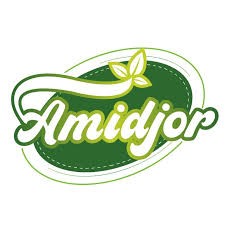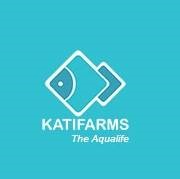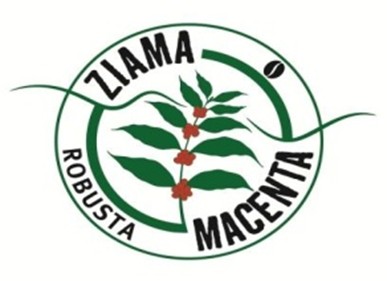Amidjor is a company specialized in agri-food production, processing, and training.

Lovin Kobusingye is the co-founder and CEO of Kati Farms. She holds a Bachelor of Science in food science and technology, as well as a Master’s in business administration. She started her agrofish business when she was 30 years old and describes herself as “an accidental entrepreneur”. She won the Africa Agribusiness Innovator of the Year Award in 2012, and her innovative solutions to solving challenges of postharvest losses in the fisheries sector in Africa have been recognised by the Rabo Foundation, the Food and Agriculture Organization of the United Nations (FAO) and the European Marketing Research Centre (EMRC).
For over ten years, she has actively encouraged government support for women-led entrepreneurship, aiming at an enabling policy framework designed to protect women in fisheries activities in Uganda and Africa. She is President of the Eastern Africa Women and Youth in Fisheries and Aquaculture Network, which includes representation from 11 Eastern African countries; Treasurer of the African Women Fish Processors and Traders Network (AWFishNET); Investment Committee Vice Chairperson, ENABLE YOUTH Uganda Program; and a National Technical Committee Member, Uganda National Bureau of Standards (UNBS TC 211) Fish and Fishery products.

Type: Limited Liability Company
Year of Founding: 2011
Number of Employees: 38, 23 of whom are women
CEO: Lovin Kobusingye
Business Model
Kati Farms is dedicated to helping local entrepreneurs build and grow successful fish businesses. It aims to add value to aquaculture products in order to make farming profitable and attractive for present and future generations.
After graduating in 2008, Lovin started to work as a secretarial administrator for the fish farmers’ cooperative WAFICOS (Walimi Fish Cooperative Society). The cooperative helps fish farmers to make better use of Uganda’s large fish resources and so to increase their fish production. Lovin saw two challenges that strongly limited the market outlets for fish farmers: (1) farmed fish is not a popular component of the Ugandan diet, and (2) fish products have to be adapted to consumers’ limited food expenditure. So Lovin had the idea of adding value to fish, initially in the form of fish sausages, to create new market access for farmed fish. She founded her agrofish-processing enterprise Kati Farms in 2011.
Kati Farms is the first agrofish-processing enterprise producing fish sausages in Africa, as well as one of the leading companies in Wakiso District, Uganda. Moreover, Lovin is the only woman owning a fish processing plant in Uganda.
Strong Relationships with Smallholders
Kati Farms sources fish from smallholder fish farmers with whom a trusting relationship has been built. For Kati Farms’ first order, the fish farmers agreed to supply fish on credit. Later on, Kati Farms helped to solve the farmers’ initial capitalisation problem, and now provides training on feeding routines, daily feed rations, feed formulation for better productivity, and proper storage of fish in ice to ensure the products are delivered unspoiled. Kati Farms also hires out expensive equipment to its farmers for a small fee to enable them to work with implements they only need occasionally and cannot afford, such as fish nets, oxygen cylinders, and water transportation tanks for delivering live fish to the fish marketing centre.
Kati Farms is a member of the Uganda National Women’s Fish Organisation (UNWFO), which has a membership of over 2 million women fish processors and traders in Uganda.
Products Covered and Markets
Kati Farms’ flagship product is the fish sausage made of locally sourced tilapia. The variety of fish and healthy products also includes, among others: fish samosas, frozen and chilled fish fillets, fish powder, surimi, crude fish oil, fish meal, etc.
Kati Farms sells its processed products in Uganda and neighbouring countries to hotels, restaurants (both domestic and international) and supermarkets, as well as on the informal market. It has over 100 vendors ranging from street stands to national grocery store chains.
Kati Farms uses its fish processing plant as a business incubator which entrepreneurs in the fish and meat sector can use 24/7, including its food-grade production space, co-working and meeting space, and cold, dry and freezer storage facilities.
Kati Farms also provides supply chain management and training to fish farmers to reduce over-fishing by using cages to farm fish such as tilapia, and to grow them according to the market-specific size (400–500 g).
Innovations: Milestones and Expansion Plans
As it couldn’t find a special facility for processing fish sausages, Kati Farms initially used machines designed for making beef sausages. The pilot project was successful but had very low sausage production. Later, Kati Farms acquired a special sausage-making machine which increased the weekly production.
A further business development has been the opening of Kati Farms’ first own-branded outlet in Kampala, Uganda, in March 2016. There, customers can buy the products, and also sit down at the café to enjoy various fish snacks.
The biggest challenges still include finding adequate processing machines, packaging materials, and spices for the sausages. Chilling and transport infrastructure are also lacking. Kati Farms has developed a salted sun-dried fish product which lasts for over a year without refrigeration to circumvent the danger of spoiled raw fish when transported to customers in regions such as the Democratic Republic of Congo.
Success Factors and Lessons Learned
Kati Farms’ successful business model and development rely on three key factors:
– venturing into innovative fish products that are adapted to customer demand
– customising products to customers’ different tastes
– participating in local and international trade shows.
Additional Resources
Join our Forum to discuss and explore how to encourage innovations across agricultural value chains to transform food systems in African, Caribbean and Pacific countries and beyond, promote sustainable agriculture & leverage investments. Share insights, ask questions, and collaborate on innovative solutions for a greener future.
Recent Business Profiles

Amidjor is a company specialized in agri-food production, processing, and training.

ADECAM is a community-driven organisation in Guinea dedicated to protecting, promoting, and developing the Ziama-Macenta Geographical Indication coffee, while supporting smallholder producers...

Tac Maz Sustainable Ventures is a climate-smart social enterprise in Malawi supporting smallholder farmers through sustainable poultry and horticulture production.

Bono Salus is a Zimbabwean woman-led agribusiness specializing in urban hydroponic farming of microgreens.

The Nut Place is a Nigerian food innovation company that processes locally grown edible nuts into gluten-free, nutrient-dense products to improve nutrition, reduce post-harvest losses, and promote...